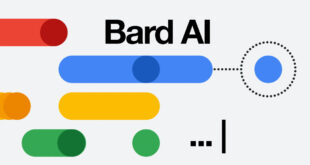Neonicotinoid insecticides, such as imidacloprid, clothianidin, thiamethoxam and thiacloprid, affect the amount of sleep taken by both buff-tailed bumblebees (Bombus terrestris) and fruit flies (Drosophila melanogaster), according to two new studies led by University of Bristol researchers.
The buff-tailed bumblebee (Bombus terrestris). Image credit: Myriam.
“The neonicotinoids we tested had a big effect on the amount of sleep taken by both flies and bees,” said Dr. Kiah Tasman, a researcher in the School of Physiology, Pharmacology and Neuroscience at the University of Bristol.
“If an insect was exposed to a similar amount as it might experience on a farm where the pesticide had been applied, it slept less, and its daily behavioral rhythms were knocked out of synch with the normal 24-hour cycle of day and night.”
In the bumblebee study, exposure to the field-relevant concentration of the neonicotinoid insecticide imidacloprid reduced foraging activity, locomotion, and foraging rhythmicity.
Foragers also showed an increase in daytime sleep and an increase in the proportion of activity occurring at night.
In the fruit fly study, the authors tested the effect of four neonicotinoids — imidacloprid, clothianidin, thiamethoxam and thiacloprid — on memory, circadian rhythms and sleep.
Field-relevant concentrations of imidacloprid, clothianidin and thiamethoxam disrupted learning, behavioral rhythmicity and sleep, whilst thiacloprid exposure only affected sleep.
“Being able to tell time is important for knowing when to be awake and forage, and it looked like these drugged insects were unable to sleep,” said Dr. James Hodge, a researcher in the School of Physiology, Pharmacology and Neuroscience at the University of Bristol.
“We know quality sleep is important for insects, just as it is for humans, for their health and forming lasting memories.”
“Bees and flies have similar structures in their brains, and this suggests one reason why these drugs are so bad for bees is they stop the bees from sleeping properly and then being able to learn where food is in their environment,” added Dr. Sean Rands, a researcher in the School of Biological Sciences at the University of Bristol.
The findings appear in two papers in the journal iScience and the journal Scientific Reports.
_____
Kiah Tasman et al. 2020. The Neonicotinoid Insecticide Imidacloprid Disrupts Bumblebee Foraging Rhythms and Sleep. iScience 23 (12): 101827; doi: 10.1016/j.isci.2020.101827
K. Tasman et al. 2020. Neonicotinoids disrupt memory, circadian behaviour and sleep. Sci Rep 11, 2061; doi: 10.1038/s41598-021-81548-2
 #Bizwhiznetwork.com Innovation ΛI |Technology News
#Bizwhiznetwork.com Innovation ΛI |Technology News




